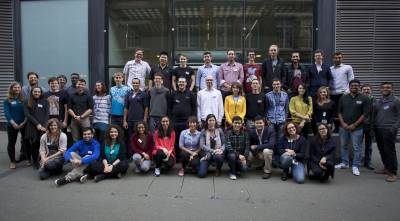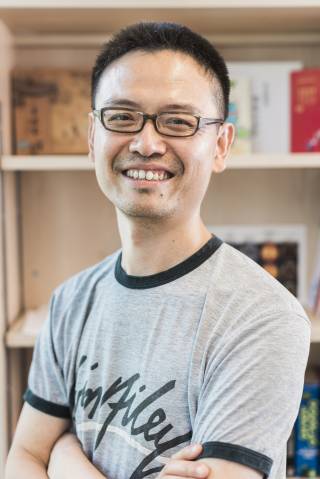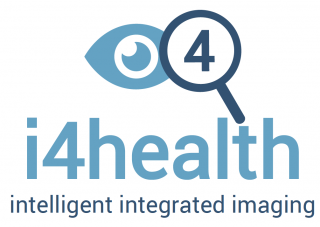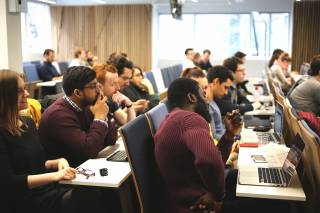Find out more about our interdisciplinary, cohort-based doctoral training programme for medical imaging.
Our programme structure
The i4health CDT consists of a 1-year MRes followed by a 3-year PhD. Our training covers everything from modular learning to critical assessment skills and is strongly multi-disciplinary, bridging the gap between engineering, clinical sciences and industry. Each project is co-led by an imaging and clinical specialist from our pool of over 100 supervisors. Take a look at our current CDT in Medical Imaging's projects for examples of the kind of research that occurs here at UCL.
- Projects and supervisors
Every student under our CDT is allocated a unique research project which aligns to both a methodological imaging and clinical theme.
Each project we accept is chosen for its translational potential, close clinical relevance and associated areas of expertise from the primary supervisors. The primary supervisors on every project must cover both an engineering and clinical specialism to ensure each students gets a broad understanding of both the technical aspects and real-world application of their research. The project often (but not necessarily) forms the basis for the student’s PhD research.
- The MRes Year
During your first year a combination of taught courses and a research project will see you complete your MRes, building the foundation on which you develop your thesis over the coming years. You will gain a comprehensive introduction into your own area of research, and the complimentary surrounding study areas.
The MRes Year consists of compulsory units and transferable skills (135 units) and further optional modules (45 units) (see here for current options).
The MRes year must equal 180 credits in total.
- MPhil and PhD
On successful completion of your MRes, your second year marks the start of your research thesis. This is usually a development of the MRes project. You will be guided in how to form the basis of your thesis successfully and continue working on research in a dynamic academic community.
Advanced Electives are available to all students in Year 2 & 3 (MPhil & PhD). They are designed to enhance your learning and provide additional skills to compliment your research in medical imaging. Examples of advanced electives taken by past students can be found below. Each student agrees participation in their own choice of advanced electives with their supervisor and the module lead. This ensures a truly tailored approach to learning for each individual student to develop the skills they need to succeed.
The comprehensive training programme ensures our students develop the skills to confidently produce academic research papers, deliver presentations at conferences and make significant contributions to their chosen research project.
Why study at our Centre?
- Strong community
We provide the training and research, but our student cohort brings the CDT to life. The highly supportive environment we provide reflects itself in the close ties our students have built with each other, collaborating on papers and journals and enjoying regular social activities together.
- Relevant research
Direct clinical links underpin our doctorates, ensuring that all research projects are relevant and have potential application to the clinical sector. We are able to take advantage of UCL’s strong connections with hospitals and biomedical research centres across London.
- Strategic alliances
The CDT is integrated professionally and managerially with elements of the three NIHR Biomedical Research Centres (BRCs) and the Biomedical Research Unit in dementia associated with UCL. Uniquely in the UK, UCL is host to three major NIHR BRCs.
History of success
Our CDT in Intelligent, Integrated Imaging In Healthcare (i4health) is preceeded by our current CDT in Medical Imaging programme, which is the largest CDT in imaging in the UK and was given the highest rating by the EPSRC Midterm Review in 2017. The i4health CDT will build on this outstanding track record of delivering world-class doctoral training, refreshing and augmenting the existing infrastructure, processes and know-how to reach new heights from a seamless start. Explore the CDT in Medical Imaging website to find out more about our track record of success.

 Close
Close




